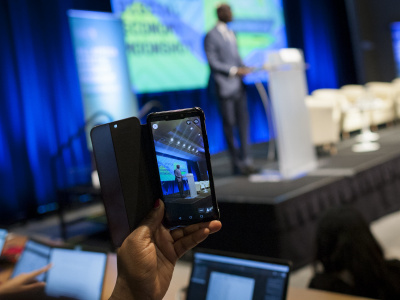
Realising the potential of AI for diagnostics in Africa: From barriers to scalability
Philomena Apiko and Melody Musoni examine AI use cases in medical imaging for diagnosing Africa’s prevalent diseases – tuberculosis, malaria and cancer – as well as in prenatal and maternal diagnostics. They find that AI plays a critical role in addressing healthcare challenges, but regulatory and investment gaps must be addressed.
This paper is the first of a three-part series in which we explore how AI is used across Africa in three critical sectors: health, agriculture and education.
Summary
African policymakers and decision-makers are exploring how artificial intelligence (AI) can strengthen the health sector, reinforced by policy measures designed to support the growth of the AI innovation ecosystem. At the same time, researchers and innovators across the continent are increasingly developing AI solutions to address Africa’s health challenges. In this paper, we examine AI use cases in medical imaging for diagnosing Africa’s prevalent diseases – tuberculosis, malaria and cancer – as well as in prenatal and maternal diagnostics.
We find that AI plays a critical role in addressing a wide range of challenges in the healthcare sector. Some emerging AI use cases place a strong focus on inclusive healthcare and addressing health disparities. This is driven by African policymakers’ firm position in global AI policy discussions, calling for ethical AI development to address both health and technology disparities. Yet, significant barriers remain, particularly in developing adequate regulatory frameworks and encouraging sufficient investment in AI infrastructure.
Regulatory challenges can be addressed by updating data laws, creating health data-sharing frameworks, and establishing ethical and legal AI governance mechanisms. Targeted funding is needed for data centers, computing facilities, hospital system integration, digital health records, cybersecurity and workforce training. In addition, verification and certification of AI in diagnostics remain limited and need to be strengthened. Finally, Europe-Africa partnerships could provide targeted support for AI in diagnostics (and healthcare generally), such as investment in digital and AI infrastructure and strengthening capacity in health regulations and ethical guidelines.





